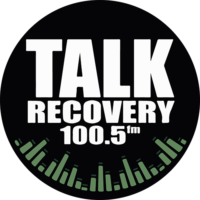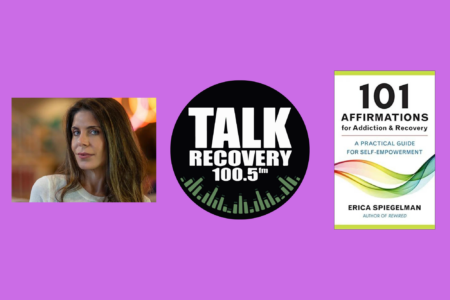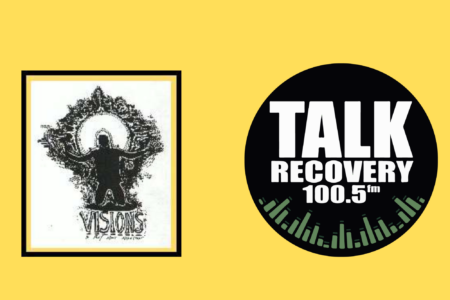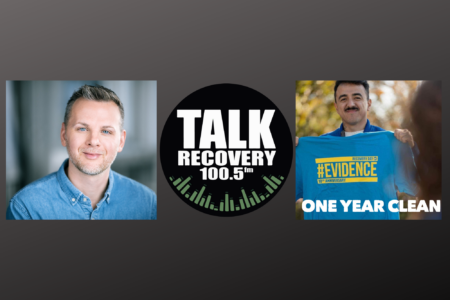“Opium Eater: The New Confessions”
Talk Recovery RadioTalk Recovery Radio airs every Thursday on 100.5 fm in Vancouver from 12 pm to 1 pm, hundreds of shows over 6 years. Bringing addiction recovery issues to the airways. Powered by Last Door Recovery Society
Replay the Show:
Guest 1
“Opium Eater: The New Confessions”
North Americans are the world’s most compulsive and prolific users of legal opioids. In this lyrical update of Thomas De Quincey’s Confessions of an English Opium-Eater, writer Carlyn Zwarenstein recounts her search for relief and release – with its euphoric ups, hallucinatory lows and desperate pharmacy visits. Along the way she traces the long tradition of opium’s influence on culture and imagination, from De Quincey to Frida Kahlo.
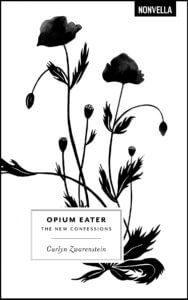
Zwarenstein, whose writing is thoughtful, honest, and elegant, opens her life to us as she guides us expertly through history, citing resources from literary biographies to online drug forums. With a little wink, she even includes a “pain playlist” with songs by Neil Young, Elliott Smith, and The Velvet Underground.
This book is so satisfying that at a slim 117 pages, you’ll be left wanting even more.” – Lauren Kirshner, Room Magazine
“Part memoir, part sociological study, Zwarenstein’s personal, easily digestible update to Thomas De Quincey’s Confessions takes us behind the headlines of overdose deaths to the myriad causes, which call for real political leadership. Urgent reading for an increasingly critical situation.”
– The Globe and Mail, 100 Best Books of 2016
Carlyn Zwarenstein is the author of “Opium Eater: The New Confessions”. Carlyn takes opioids for chronic pain. She realized that as Canada is in an opioid crisis it seemed like a good idea for her to share what it is like to be dependent on painkillers when you are using it for pain and not recreationally. When she was prescribed a mild opioid Carlyn went home and googled it and realized that many parts of the world had a huge addictive issue wit it and typically people who are prescribed opioids are diagnosed with an opioid use disorder which could have resulted from previous use disorder or been acquired from the time of use of the painkiller.
Carlyn believes that most people who are addicted to prescription opioids are abusing someone else’s prescription and there is also new research that has come out on the numbers of people to suffer a prescription opioid overdose are also consuming alcohol at the same time or other benzos.
When asked about what life would look like without taking medications Caralyn said there is an alternate way of treating her pain which is mindfulness meditation and exercise and she said she has tried it numerous times but every time she said her life “shrinks dramatically”, work responsibilities are not met, family responsibilities are not able to be taken care of and making a living does not happen, she said “ I end up depressed and a little suicidal and very poor.”
Someone who is prescribed an opiate usually have been through years of pain and now a days opioids for pain are not prescribed as easy as they used to be. When someone is prescribed an opioid today they normally have to go through surveys and tests and asked if they have tired alternate treatments such as mindfulness meditation and other techniques.
Caralyn said she has been taking opioids to treat pain since 2011 and has never been diagnosed with an opioid use disorder, which is the technical term for an opioid addiction. In the book Caralyn touches on the difference between dependence and addiction because that’s very often confused, physical dependence is something that occurs with a lot of medications and drugs including opioids but also selective serotonin reuptake inhibitors or example or depression. When you have physical dependence, you need to taper slowly and carefully.
You can buy “Opium Eater: The New Confessions” on Amazon and at some independent bookstores.
Guest 2
Personal Addiction Recovery Story
Followed by Personal Story with Araxy K, each week we bring you a personal story of overcoming addiction.
Araxy is on the show to share her personal story of recovery from addiction. Araxy said she stated using substances at 14 years old, consequences occurred when she used but did that did not stop her from using. Araxy thought she was just having fun and using wasn’t a issue to her until she found herself downtown using harder drugs and getting admitted to the hospital and psych units.
When ask for the viewers who do not understand what addiction is like, why did you continue using after your first overdose. Araxy said that she was scared the first time she overdosed and did not use for about a month after that but the obsession of drugs and the feeling they gave her made her realize that using was a good idea and she started using again even after an overdose.
Araxy said she went to detox many times throughout her using and went to treatment multiple times, but every time she asked for help it was never for her but for someone else and to please them, or she needed some rest because of all the physical pain detoxing put her through or just somewhere to live. Araxy said she really felt the healing started in August 2017 when she went back to her moms house because she got evicted from her apartment downtown and she said to her mom “I’ll take up your offer to go to private treatment”. Araxy’s mother planned for a woman to come pick her up and drive her to treatment, the morning to going to addiction treatment Araxy said “I’m not going, I don’t want to go anymore, you can pay the lady for gas but I’m not going”. The woman taking her to treatment came by and spoke to her for 5 minutes and after the 5-minute conversation Araxy decided to go to treatment. But when she went to long term private treatment she found ways to use and was using in treatment. The treatment centre let her stay but took away privileges from her and towards the last 4 or 5 months of treatment she was not using and stayed clean from drugs and alcohol.
The fourth time Araxy overdosed and was taken to St Paul’s hospital she was offered some pamphlets for Suboxone and Methadone and a glass of water, she said she asked to stay because she was suicidal and she was feeling not stable enough to be released from the hospital and they said you can’t stay here and she would leave with no referrals for any other programs or styles of treatment other than a Suboxone or Methadone pamphlet.
Archive of all shows can be found here www.TalkRecoveryRadio.com
Listen and Subscribe
Talk Recovery airs live every Thursday at noon on 100.5 FM, Vancouver Coop Radio. The Last Door produces this weekly radio show discussing the many pathways to addiction recovery. To end stigma we must continue to talk about recovery. Talk Recovery is in its 7th Season, Hundreds of guests, thousands of listeners, thank you. Show ideas? Email community@lastdoor.org
Powered by #NewWestRecovery

